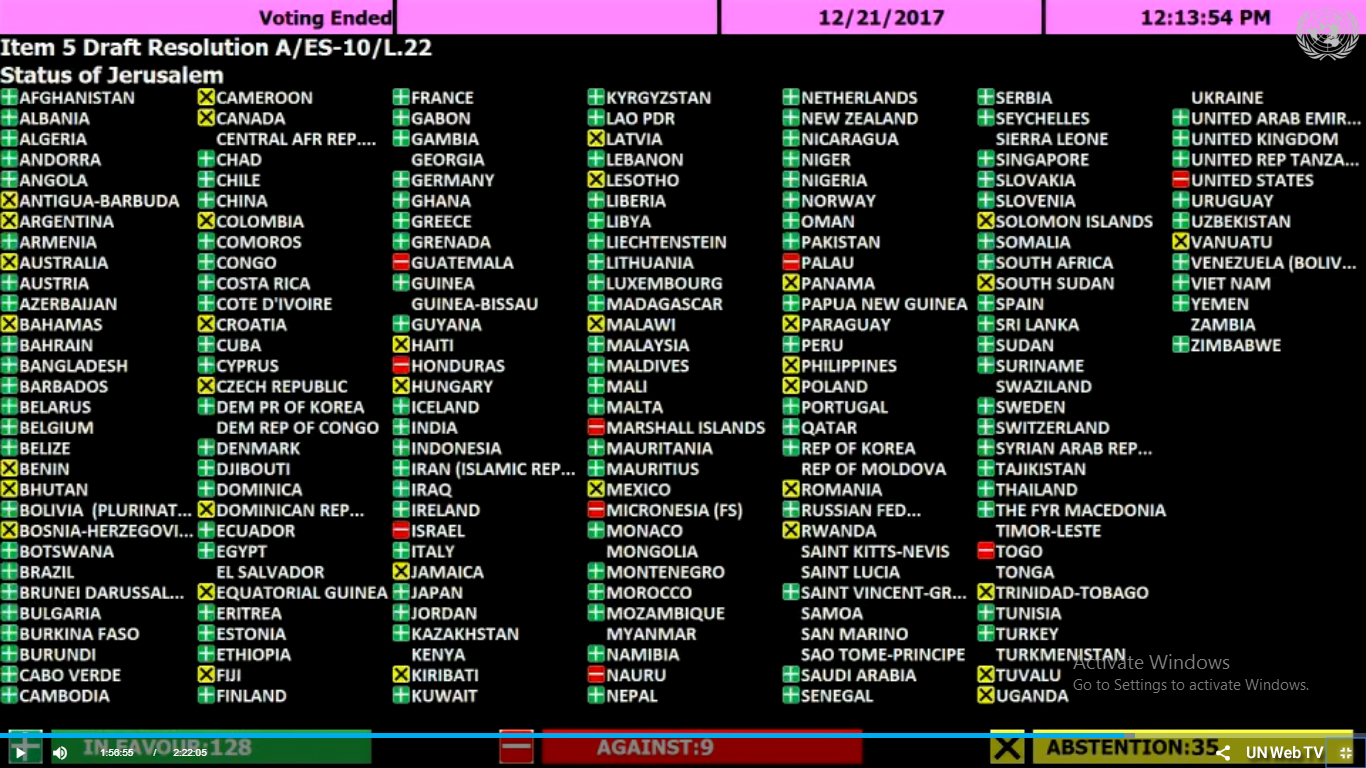Guyana was one of 128 countries which yesterday voted to reject the US’s recognition of Jerusalem as the capital of Israel but CARICOM was deeply divided on the issue.
On December 7, US President Donald Trump announced his administration’s acknowledgement of the city as Israel’s capital. He also announced plans to move the US embassy from Tel Aviv to Jerusalem in direct contravention of international practice. It was also a fundamental break with traditional US policy.
The international community does not recognize Israeli sovereignty over the entire city- home to sites holy to the Muslim, Jewish and Christian religions. Jerusalem is held as “a final status issue to be resolved through negotiations in line with relevant United Nations resolutions.” No other country has its embassy in Jerusalem. Guyana has never supported the concept of Jerusalem as the capital of Israel but has supported a special status with recognition of concerns of the Palestinian government.
Just before 1 pm yesterday the 10th Emergency Special Session of the United Nations (UN) General Assembly recorded 128 votes in favour of draft resolution A/ES-10/L-22: Status of Jerusalem, nine against and 35 abstentions. The draft resolution had been taken to the Security Council on Tuesday but failed 14-1 after the US used its privilege as a permanent member to veto the vote.
Yesterday seven CARICOM member states (Barbados, Belize, Dominica, Grenada, Guyana, St Vincent and Suriname) voted for the resolution while five (Antigua and Barbuda, The Bahamas, Haiti, Jamaica and Trinidad and Tobago) abstained. St Kitts and Nevis and St Lucia were among 21 nations which did not vote.
The nine states which opposed the resolution were the United States, Israel, Togo, Micronesia, Nauru, Palau, Marshall Islands and the South American nations of Guatemala and Honduras.
South American countries which voted in favour of the resolution included Brazil and Venezuela. The United Kingdom also supported the resolution while Canada abstained.
The divided CARICOM vote again underlines how the group of 15 is unable to find common ground on foreign policy. The decision of Trinidad and Jamaica to abstain on the vote will raise eyebrows.





